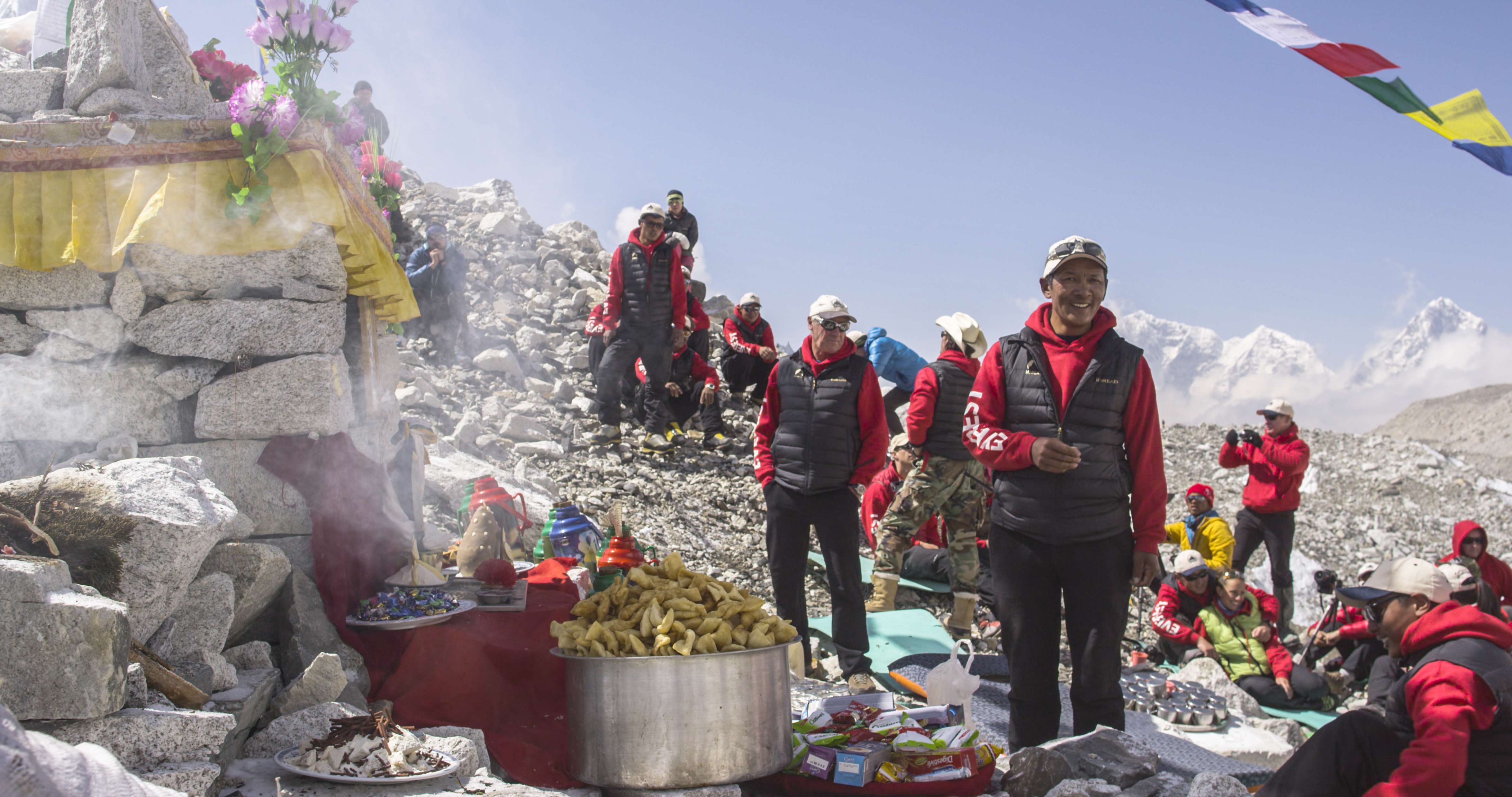
There has been a gradual change in the perception of globetrotting thrill-seeking over the past half-century, as the colonialist undertones in conquest-based tourism seem more apparent to the current generation than previously, as anyone who has heard a Boomer parent reminiscing of when they “were allowed” to climb Uluru or enter the Pyramids will recognise. Increased cultural sensitivity and respect (combined with the interests of historical preservation) has made many bucket list activities of decades past not just unattainable, but also ethically repugnant. Yet in the cultural imagination, just as it does geologically, Mt Everest still stands tall – still a fictional benchmark of human physical achievement, yet still deeply entrenched in the exploitation of a particular ethnic group’s labour and cultural integrity. Jennifer Peedom’s Sherpa explores the particularly thorny situation surrounding the Sherpa community in Nepal who act as guides for wealthy tourists who spend months – and crucially, tens of thousands of dollars – each year in attempts to scale the world’s highest peak.
Sherpa follows this multi-million dollar enterprise through two central characters; Phurba Tashi Sherpa, an experienced guide who is one summit away from the world record, having topped Everest a staggering 21 times, and perhaps most fascinatingly, Russell Brice, renowned climber and tour operator to whom the audience will come to develop a very complicated reaction. What starts as documentary following one of these tours is transformed dramatically as Peedom captures the worst tragedy in climbing history, the disaster of 2014 in which 16 sherpas were killed. Instead of an IMAX-ready travelogue, Sherpa becomes a fascinating, talky drama about the fallout of the tragedy and tensions rise between the sherpas, climbers and the tour operators in between as to whether or not the climb will go forward that year, and in short, whether the respect for dead trumps tourist dollars.
The stand-off makes for thrilling viewing, and Brice becomes a fascinating character. At first he comes across as a genuinely conflicted man, not just conflicted insofar as capitalism inherently compromises his more human instincts, but apparently maintaining friendships and deep respect for the Sherpa community while understanding the underlying axiom of the whole enterprise, that the Sherpa community are dependant on this money to feed their families. But as tensions rise, he displays signs closer to sociopathy and manipulation in trying to resolve the issue, saying many things in negotiations with the Sherpas that elicited widespread gasps throughout the State Theatre.1 Peedom doesn’t judge him, and exactly what his motivations are form many of the lingering questions to consider after the film, with the suggestion that some of the more offensive things he says and does just may be toward noble ends.
The single most effective element to Sherpa is Renan Ozturk’s cinematography, especially the scenes climbing the mountain. Reaching dizzying highs, and walking over awe-inspiring chasms and peaks, these sequences capture the sheer terror and adrenaline elicited from the life-or-death stakes of the climb at its most dangerous. The main detraction from the film then is the relative paucity of these scenes, which are likely the most viscerally affecting of not just the film but perhaps the entire Sydney Film Festival, though only make up perhaps ten minutes of the film overall. Shots around the Sherpa villages are also impressive, capturing the sense of life and community in the short time we spend there. The soundtrack doesn’t fare quite as well, however; a generic overblown creation that would have been forgettable had this been a routine trek of the mountain, but that it was kept after the tragedy that changes the course of the film signifies a rare lack of discretion by the filmmakers.
Ultimately, Sherpa captures some unforgettable footage and does act as a call for action, though all parties are aware of the unfortunate limitations in that. The film doesn’t say as much, but there are hints that in a perfect world Everest wouldn’t be climbed at all, and by extension, Sherpas wouldn’t be needed to do the bulk of the grunt work in making those trips happen. But that lasting frustration the film leaves us with is the cruel codependent relationship of the two camps – without this tourist attraction, the impoverished community could no longer survive, such is the entrenched capitalist structure of the climbing enterprise that governs life for the Sherpa community. The difficulty in processing this film is that it illustrates the exploitation of Sherpas by Western tourists, and yet can’t responsibly dissuade potential climbers from going along. There are a lot of measures that can be fixed – calls for tougher regulations, increased safety precautions, the ability to use helicopters for more of the work – but the fundamental problem and power imbalance at play is something Sherpa can only helplessly portray.
Around the Staff
| Conor Bateman | |
| Jeremy Elphick | |
| Dominic Ellis | |
| Imogen Gardam | |
| Virat Nehru | |
| Jessica Ellicott | |
